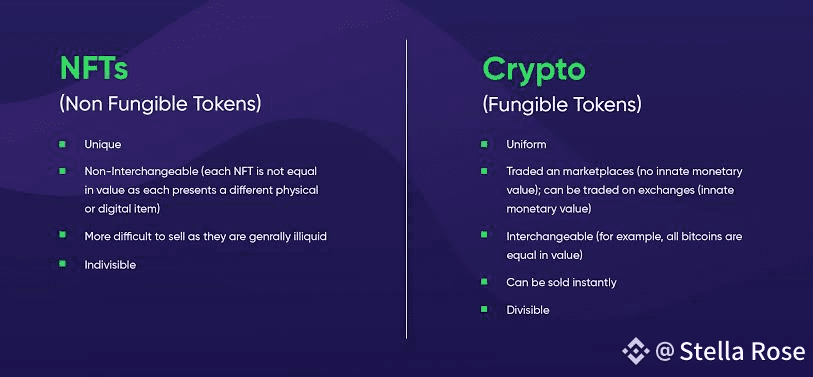An NFT (Non-Fungible Token) differs from a cryptocurrency (like Bitcoin or Ethereum) in several key ways. . .

1. Fungibility
NFT: Non-fungible — each token is unique and cannot be exchanged on a one-to-one basis with another NFT.
Cryptocurrency: Fungible — each unit (e.g., 1 BTC or 1 ETH) is identical in value and function to any other unit.
2. Purpose
NFT: Represents ownership of unique assets like digital art, collectibles, music, virtual land, etc.
Cryptocurrency: Primarily used as a medium of exchange, store of value, or utility token within ecosystems.
3. Structure
NFT: Contains unique metadata and attributes, often pointing to digital content.
Cryptocurrency: Has no distinguishing features between tokens; all are the same.
4. Interchangeability
NFT: Not interchangeable; each has different value and significance.
Cryptocurrency: Fully interchangeable; 1 ETH = 1 ETH, regardless of where it came from.
5. Standards
NFT: Built on standards like ERC-721 or ERC-1155 (on Ethereum).
Cryptocurrency: Typically follows ERC-20 (on Ethereum) or native blockchain protocols.
#TradingTypes101 #SaylorBTCPurchase #CEXvsDEX101 #MarketPullback #TrumpMediaBitcoinTreasury